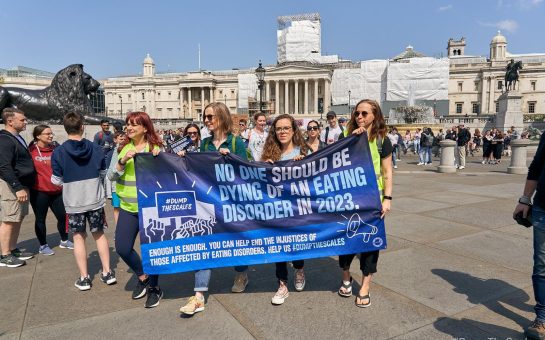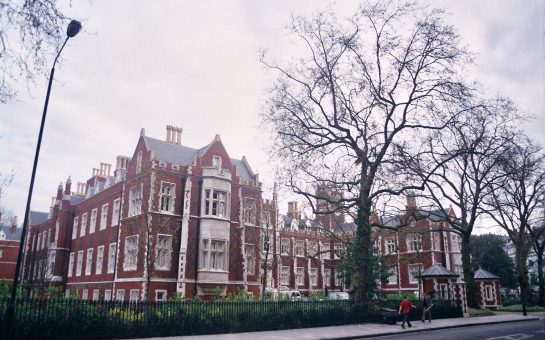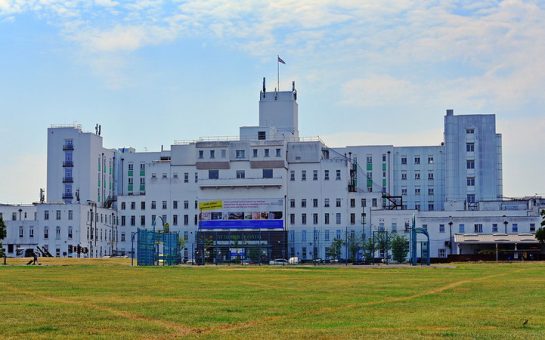Junior doctors are making headlines again as a 48-hour strike, which includes no longer providing emergency care, enters its second day.
At Fulham’s Queen Charlotte’s & Chelsea Hospital, a maternity and neonatal care hospital, a receptionist is taking a phone call from an anxious patient.
“Yes, that’s right,” she replies. “There is a doctors’ strike on, but there will be staff in place to deal with the emergencies.
“If you do go into labour, I suggest you come in. You will not be left on your own.”
The junior doctors’ strike has been supported by consultants who are covering shifts while their colleagues take to the streets in an outcry against the imposition of the junior doctor contract.
Dr Omar Mulki, an obstetrics and gynaecology physician with 12 years’ experience, opens up about the mounting problems facing the NHS as the deadlock between the government and the British Medical Association hardens.
Despite the warm smile, the 36-year-old doctor is fed up and weary and the hosptial’s atmosphere is thick with an air of desperation and urgency.
The doctor’s rest room is a small box room and Dr Mulki sits down and concedes: “The two-day doctors strike is the tip of the iceberg.
“Let me demystify this for you – the government are trying to bring in a seven-day system, and it’s a misnomer.
“The NHS runs seven days a week, 24 hours a day. There are no days off and there’s always someone here to look after patients. What doesn’t run seven days a week, is elective clinics and elective theatres lists.
“If the Department of Health want to instigate making clinics and theatre lists available at the weekends, you’re looking at a multitude of tasks that have go with it.”
Today sees NHS hospitals in England on their first all-out strikes since the National Health Service’s inception in 1948.
The new Junior Doctor Contract, championed by Secretary of State Jeremy Hunt, aims to introduce a new seven-day working week, but the controversial move has been bitterly fought and debated.
However, this is untenable according to the BMA and Dr Mulki wholeheartedly agrees, he says labour ward duties and A&E are covered at weekends and doctors are not challenging this current practice.
The new contract, which was rejected by the BMA and is now being forced onto hospitals, will see junior doctors who work Monday to Friday stretch themselves to cover elective weekend shifts without employing extra staff.
Dr Mulki believes that doctors are already overstretched and to be dictated to work weekends as well would be a danger to their wellbeing and more importantly patients’ welfare.
He said: “We are stressed, overworked and fed up with the constant pressure that is piled on us in relation to austerity which is not our responsibility.
“As junior doctors we carry on without complaining and are happy to put in the extra hours – this is what is required of us as doctors and we love what we do.
“No one goes into medicine thinking ‘I’m going to stick to a timetable’. No one tells us that we must stay late to save lives but equally, no one needs to. We just get on with it as it is part of our job.”
Dr Mulki was born in St Johns Wood to Lebanese parents, he graduated from University College London and has worked tirelessly over a 12-year period, often to the detriment of seeing his growing family.
“We are not stupid people,” he offers. “We are a group of professionals who have sacrificed a lot to be here and we want to feel appreciated in a job that means a lot to us.
“We too deserve worklife balance without feeling overstretched or a whip being held over our backs.”
While the new contract proposes to increase basic pay by 13.5% on average, this has been disputed by doctors who say that with extended hours they are essentially facing a real-time paycut.
Dr Mulki insisted other elements of the pay package should be scrutinised, including what constitutes ‘unsociable hours’.
He said: “The contract stipulates Saturdays will be paid at normal rate, while extra premiums offered for nights and Sundays are lower than what is currently paid.
“But it is not only about these proposed rates, it is also about safeguarding our wellbeing.”
At present, junior doctors are camped outside the Department of Health HQ, keen to speak with Mr Hunt but he continues to evade them, insisting that he will not change his mind.
BMA chief Dr Malawana has offered to call off the strike if Mr Hunt would agree not to impose the new contract from August and get back around the negotiating table.
The possibility of piloting the seven day week shift has also been floated, as talk of evidence based practice is believed to be one effective way to assess its viability.
Dr Mulki said he sees no harm in piloting within specific trusts in and around the country for a year in order to gather solid data and feedback from both doctors and the trusts.
“Then we can sit down and engage in discussion and it will be based on evidence – not made up stories,” he said.
“No colleague I’ve ever spoken is overjoyed at the prospect of striking.
“The priority of junior doctors has absolutely nothing to do with politicizing our own interests.
“At present the focus is that we’re able to carry out our functions unhindered by politicians trying to destroy the foundations of an NHS that we should all be proud of.”
Dr Mulki said if he were the health secretary, he would listen to the educated body of individuals who are altruistic and not selfish – many who have given much to the service of the NHS.
He said the junior doctors want to resolve the issues at hand via meaningful discussions with anyone who is ‘fair and reasonable and who cares about the NHS’.
“The way things are going, the NHS is teetering on the brink of extinction,” he said.
“It is one of the best systems globally, and to lose it would be an absolute shame.”




